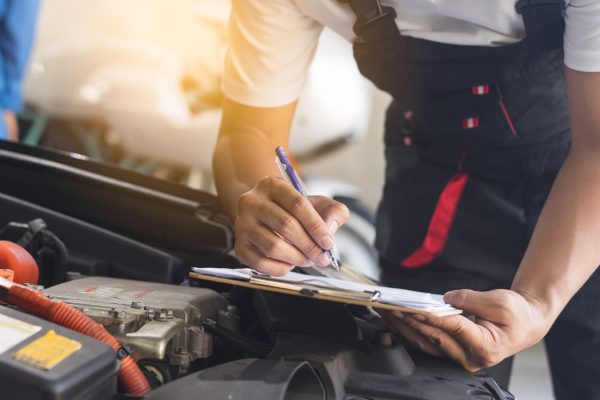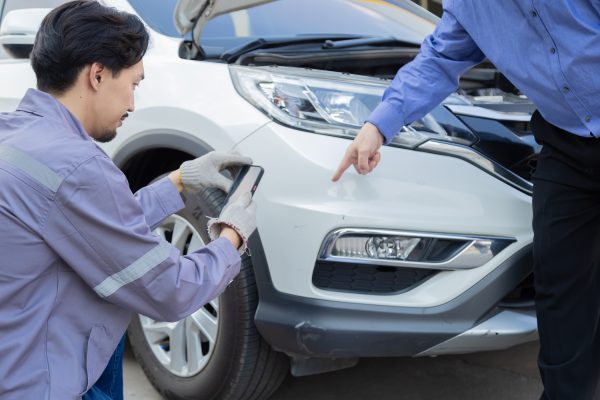The government guidance issued straight after Boris’s lockdown announcement gave car dealers some flexibility while selling vehicles through Lockdown 2.
However, when the corresponding draft legislation was released on Wednesday 4 November, it was a different story. Here is the latest position to our members top 3 most frequently asked questions.
Can a customer collect a vehicle from my premises?
The legislation (which will trump the guidance) only allows dealers to handover cars in response to online or telephone sales. Customers can only pick up “pre-ordered” vehicles and according to Regulation 18, a purchaser cannot enter the premises. Given that Part 2 of the Schedule defines premises as including all outdoor areas, this would appear to mean that dealers should handover the car away from their entire premises. Indeed, the now updated guidance states that pre-ordered goods should be collected “off the premises”.
In our opinion, this is nonsense. And it would appear the Welsh lawmakers agree as their new legislation (from 9 November 2020) specifically allows for the collection of goods from an otherwise closed premises.
We, therefore, do not have a problem with dealers allowing customers to collect from their premises. However, your local Trading Standards Officers who will be enforcing the legislation may take a different view and do bear this in mind as fines for businesses who breach the rules start at £1000. To be super safe, those dealerships with a service and repair centre can use that as a collection point as those areas are allowed to stay open.
Do I have to give a customer the 14 days distance sale right to return the vehicle for a refund?
This is undoubtedly the hottest topic. Based on the initial guidance, we thought dealers could work around this by taking a holding deposit and then completing the deal when the customer arrived to collect the vehicle. However, the later legislation was worded in such a way that no business could be conducted on premises and customers were only allowed to collect a vehicle for which they had already paid. This of course, does not necessarily fit with car dealerships for a number of reasons. However, that is the law with which we have to work.
The short answer is unless you are selling a vehicle on finance (in which case you need to liaise with each particular finance house to see how they want to approach this) or you are selling a vehicle which will be used for commercial purposes, such as to use as a taxi or a work van, then any sale during Lockdown 2 is almost certainly going to be deemed a distance sale by a court.
This means you are best advised to provide the customer with the relevant distance sales paperwork (see our FREE templates below) giving them the right to return it for a refund within the first 14 days if they change their mind about the car. This is a concern for many dealers. However, out of all the thousands of dealer v consumer cases we deal with, it is extremely rare for an issue to come up about the 14 days return policy. In fact, if you issue the paperwork, not only will you comply with the law, you will also prevent the customer from returning the vehicle for no reason 6 months down the line (which they will be legally able to do if you fail to issue the paperwork). You will also have control about the level of refund you provide and can put the onus on the customer to return the car rather than you having to collect.

Stocking only premium EV charging cables, we ensure you experience a stress-free EV charge, over and over, confidently backed by our 2 year warranty. Our premium & reliable charging cables are compliant with EU & UK safety standards. We offer free next day delivery* on all EV charging cables when shipped within mainland UK.
You may be wondering why Cazoo offer a 7 days return policy and not 14. To answer that, you will have to ask them. However, we would expect that a court will deem that their 7 days offer is in addition to, and not a substitute for, the customer’s statutory right to the 14 days distance sale rights. Cazoo and indeed Cinch (who do offer the full 14 days to return) both give the customer 250 miles of driving around in the car and both will collect the rejected vehicle too. This is not an ideal situation for most bricks and mortar dealers which is why we advise that they use our template to set down the terms of the 14 days return option to mitigate any loss. Our template will restrict the customer to 20 miles of driving before they are charged £1 per mile as a deduction for usage. It will require the customer to return the vehicle themselves. It will ensure the customer is responsible for any fines or charges they clock up while driving around in the car and require all documents and spare keys to be returned before a refund is issued. In short, used correctly, the 14 days change of mind paperwork cannot only work to give a customer confidence in buying without seeing the vehicle in person but will lessen the potential costs. If you do not issue the paperwork, the customer will be demanding a full refund, refusing to return the vehicle and having the legal right to do this for up to 1 year and 14 days after the sale.
What are the consequences of breaching the rules?
The fines for a breach by a business start at £1000 for the first offence, rising to £2000, £4000 and then £10,000 for any fourth and subsequent offence. We would hope that unless a dealership is blatantly disregarding the rules, that the local Trading Standards Officers will simply have a discussion with the business in the first instance rather than jumping straight to a fine. This time around the rules do not appear to be as strict but even last time, stores with the tiniest square footage of essential items managed to stay open for all goods totally unchallenged. Clearly, Trading Standards cannot be everywhere, but if you are challenged for what you feel is a borderline breach (in fact, anything except keeping the showroom open to the public), do contact us and we will help you defend your position.








